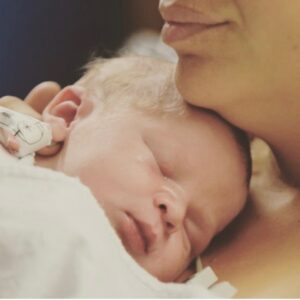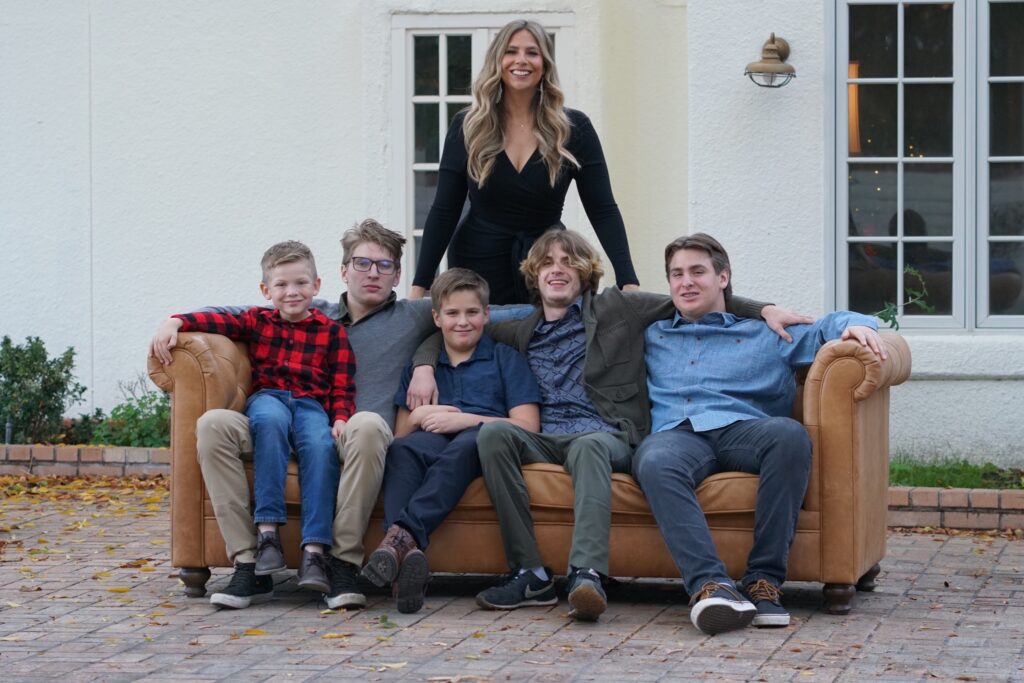DAY MONTH YEAR – DENIM L. SLADE, PHD
One of the main points we focus on with our clients at Healthy + Happy is Attachment. Attachment is a theory of human development, that gives us a blueprint for how we show up in our relationships now, based on our past experiences and life within our family of origin.
Attachment is one of the concepts that I deeply wish 20 year old Camille had learned about before embarking on the journey of raising five sons.



Skills and Knowledge That I Did Not Have...
You see, I have five handsome energetic rambunctious boys. And I, their mom have made A LOT of mistakes. As have my parents with me, and their parents to them, and so on.
Part of parenthood IS making mistakes. Part of being human IS to make mistakes and hopefully proceed differently when knowledge is acquired. I tell my clients it’s important to look into the past as to seek information/data and asses how you show up now. Not as evidence to condemn yourself for your mistakes.
Side note- as an ‘ O’ I resist looking in the past. The present moment takes up the most space in my brain. 🫣
Most people are only as needy as their unmet needs.
-Dr. Amir Levine
Attachment Styles
Our attachment style, whether, anxious, disorganized, secure or avoidant is mostly wired by age 3. That’s where 20 year old Camille aced the assignment- having babies, loving on them, snuggling them into my bosom at all times, morning and night? Check…. Check… check….
Raising moody teenagers… fail.
Being distracted with my own personal problems and not sensitive when they need me? Yup.
Every human being has core needs of feeling, unique and special, and that they matter in the world to those they SHOULD matter to. This includes their parents, primary caregivers, and loved ones. Studies show that these needs need to be met 80% of the time to create secure attachment. The daily routine of being a steady secure base and making time to responding sensitively to disorganizing moments are both important to healthy attachment.

What It Means
What does that mean for me in my 22 years of parenting filled with mistakes? That means that what matters most is not that I’m perfect, but that the PATTERN of being a secure base for my children is what matters. Learning about attachment empowered me with the knowledge that being there for their moments- where they are disorganized emotionally- needs to be at the top of my list of priorities.
I’ve also learned that taking care of my personal reservoir greatly impacts my ability to:
1- Recognize those attachment moments.
2- Respond sensitively.
When I’m feeling stretched too thin, I do indeed cry over spilled milk. Multitasking ( hello moms?!) also impairs my ability to be a secure base. Attachment moments are not on my radar if I’m too busy.
A secure base is a launchpad for exploration and a safe haven to run to. *Think of toddlers that feel safe to toddle around as long as you’re in their eyesight.*
I also have learned to not underestimate the power of a repair. Circling around if you were NOT sensitive and available for attachment moments, and saying:
“ I don’t like the way I handled that, can we try again? “
“ You matter to me, your feelings matters to me, I’m ready to listen.”
“ I understand you are upset, I would feel upset to if….. I’m here for you, we can work through this together”
“ I’m on your team.”
Perhaps one of the most important things we can model for our children, is realizing missteps, changing behavior, and trying again.
Change happens slowly overtime. Learning about attachment has allowed me to handle things differently then my parents did, and my children hopefully will build upon the things I’ve learned. Hopefully generations down have the potential to have healthier family dynamics.
Or at least the permission that it’s ok to seek help. Which is what 36 yr old me did.
Good job 42 yr old Camille. 👏🏼
-RESOURCES-
If you’re interested in learning more about the different Attachment Styles that exist and how they influence the way we form relationships and connect with those around us, check out this podcast episode from Dr. Slade about Attachment!

